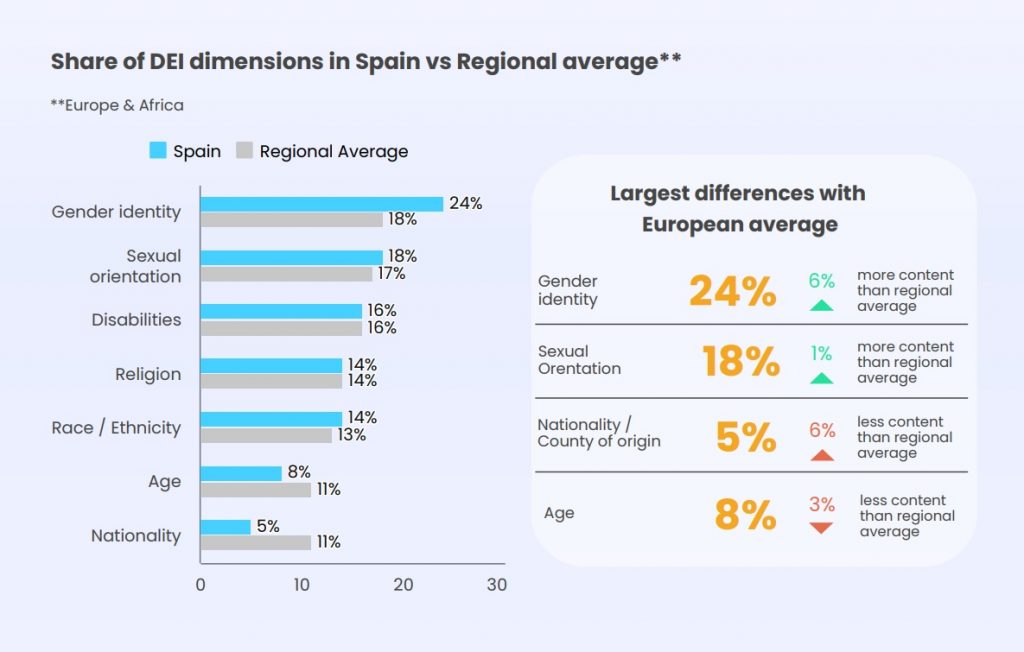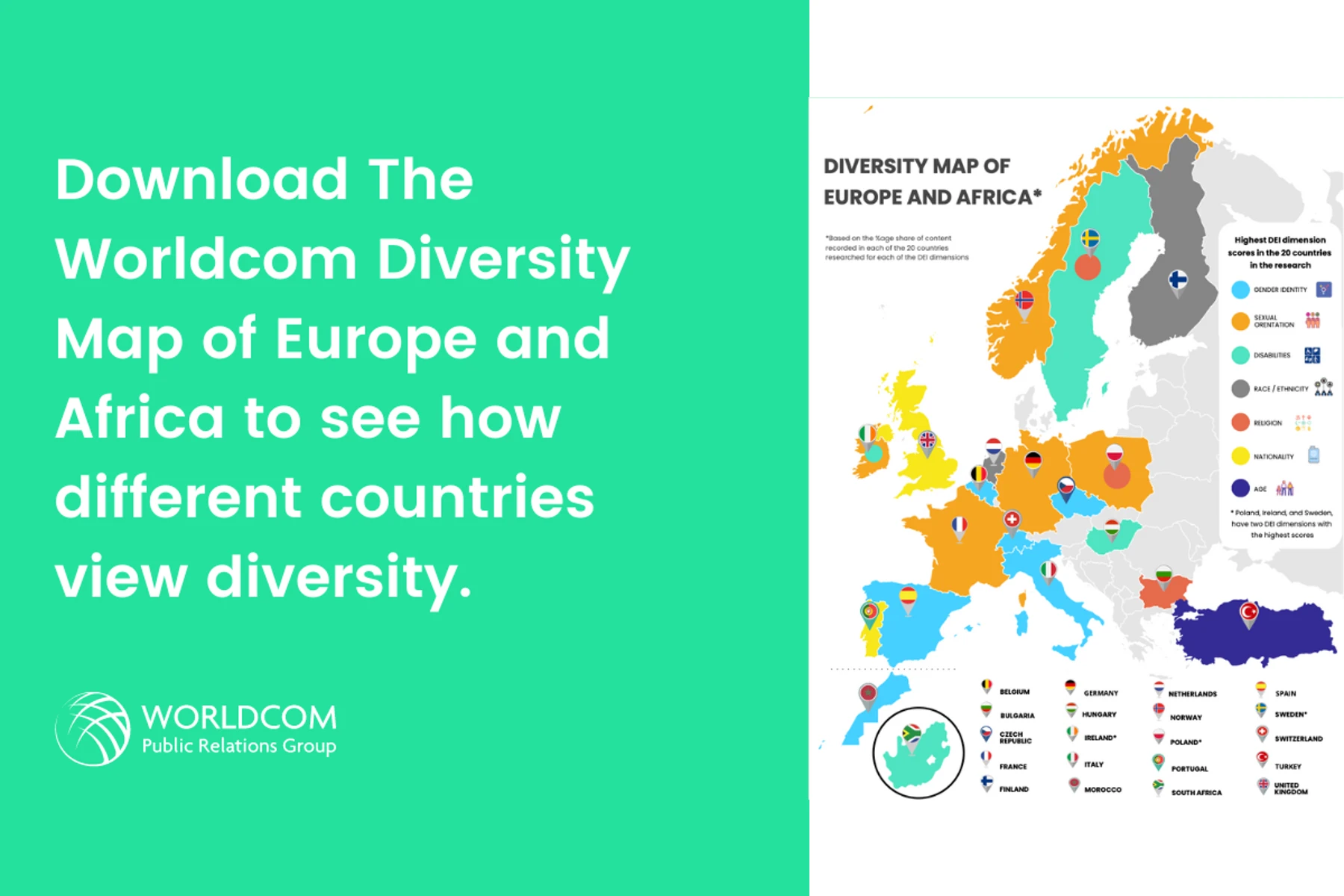The Worldcom Public Relations Group, the world’s leading association of independent public relations companies, has published the Worldcom Diversity Map for Europe and Africa. The report shows that it is essential to develop a diversity policy that takes into account local actions and not only regional or global standards. In the case of Spain, where the agency LF Channel is one of the representatives in the country, the data has shown that gender identity is the most relevant dimension for companies.
Worldcom has analysed online coverage over a six-month period to see which of the seven dimensions of diversity receive the most attention. The full report provides country results and a regional overview, highlighting similarities and differences with the region’s average. The dimension of diversity that appears most frequently in the 20 countries in Europe and Africa is gender identity (18.2%), in line with the results for Spain. Sexual orientation was the second most frequent issue (17.6%), followed by disability (14.7%), race/ethnicity (14.2%), religion (13.6%), nationality (11.1%) and age (10.7%). Although age and nationality appear least often, the fact that they do so so frequently shows that any EID policy should take all these dimensions into account, especially as people are working longer and longer and economic migration is on the rise.
DEI in Spain:
If we look at the particularities of Spain, in addition to the fact that gender receives 6% more attention than the average for the EMEA region, we can also observe that sexual orientation is one point higher. On the other hand, nationality or country of origin and age are below the average (6% and 3% below, respectively). Imma Folch, CEO and founder of the communications and marketing agency LF Channel and president of Diversity, Equality and Inclusion for EMEA at Worldcom PR Group, comments: “Although diversity is a global concept, its application and integration in corporate policies is not uniform, as it varies according to the cultural and social context of each country. The case of Spain is representative because of the nature of its language, in which there is no neutral gender. Therefore, the use of conventional Spanish does not integrate men and women equally and favours inequality between both groups. Therefore, the use of inclusive language in communication strategies is essential in order to reach all audiences. In our case, one of the most important aspects for me and for the people in my team is to promote and give a voice to inclusive communication”.
Imma Folch explains: “Achieving diversity is not an isolated objective, but is integrated within a common denominator: generating commitment to the brand. Beyond offering services or selling products, companies seek to represent values and consumers want to relate to brands with a clear purpose. In this sense, it is no longer enough to talk about sustainability or corporate social responsibility: now the key concept is ESG policies. Those companies that take into account environmental, social and corporate governance factors will be the ones that position themselves ahead of the rest.

Advice from Worldcom experts in other European countries:
Helen Mack
Account and ESG Director, HBI PR & MarCom: “If you operate in Germany, you need to use language that is gender-sensitive and inclusive of minority groups. Especially in corporate communication, implementation can be complex. A guideline for all employees is a must and should serve as a basis for being inclusive in all texts. If one of your target groups is the young generation, you should treat the topic very sensitively, because sexual orientation is an important issue. Apply the rules in all external texts (e.g., press releases and press materials, blog posts, newsletters, social media, invitations, etc.), but also in internal communication. Do not forget the oral format, e.g., in audio or video interviews, panel discussions or podcasts. Special training is highly recommended and takes time. Gender correctness requires practice.
Andras R. Nagy
General Manager, Probako Communications: “Companies communicating in Hungary must pay special attention to the issue of disabilities, both in terms of content and technical aspects. Extensive legislation helps people with disabilities; for example, TV stations have to provide subtitles for the hearing impaired. Hungarian society shows ageing tendencies, so this is also a relevant issue in this market. Companies have to be especially careful when communicating with or referring to older people”.
The study covers 20 countries: Belgium, Bulgaria, Czech Republic, Finland, France, Germany, Hungary, Ireland, Italy, Morocco, Netherlands, Norway, Poland, Portugal, South Africa, Spain, Sweden, Switzerland, Turkey and the United Kingdom.
The seven dimensions of diversity studied in this report are:
Age, disabilities, gender, nationality, race/ethnicity, religion and sexual orientation.
